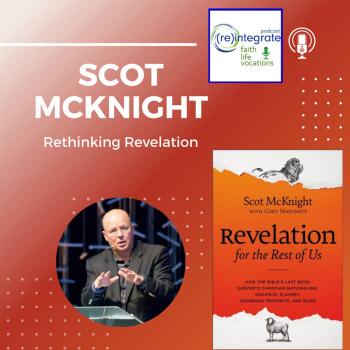 In a couple of previous posts, I discussed the concept of “Holistic Mission” (via Christopher Wright) and “Integral Mission” (via Rene Padilla).
In a couple of previous posts, I discussed the concept of “Holistic Mission” (via Christopher Wright) and “Integral Mission” (via Rene Padilla).
Basically, the idea is that the mission of God’s people cannot be truncated to just evangelization. For Wright,
“Holistic mission includes the whole of what God calls and sends us to do. Evangelism without social action is not holistic mission. Likewise, social action without evangelism cannot be holistic mission either.”
For Padilla,
“The mission of the church is multifaceted because it depends on the mission of God, which includes the whole of creation and the totality of human life.”
None other than John Stott championed the view that the mission is both evangelism and social action rather than either/or.
But this view of our mission as Christians is not held by everybody in the evangelical world.
 Take, for example, a recent book by Andreas J. Köstenberger and Peter T. O’Brien, Salvation to the Ends of the Earth: A Biblical Theology of Mission. I had the privilege of learning Greek from Andreas Köstenberger when he was working on his Ph.D. at Trinity Evangelical Divinity School. Now he is a well-respected New Testament scholar, holding the title of Senior Research Professor of New Testament and Biblical Theology at the Southeastern Baptist Theological Seminary. Peter O’Brien is a venerable Australian New Testament scholar, having been the Vice Principal of Moore College in Sydney.
Take, for example, a recent book by Andreas J. Köstenberger and Peter T. O’Brien, Salvation to the Ends of the Earth: A Biblical Theology of Mission. I had the privilege of learning Greek from Andreas Köstenberger when he was working on his Ph.D. at Trinity Evangelical Divinity School. Now he is a well-respected New Testament scholar, holding the title of Senior Research Professor of New Testament and Biblical Theology at the Southeastern Baptist Theological Seminary. Peter O’Brien is a venerable Australian New Testament scholar, having been the Vice Principal of Moore College in Sydney.
The book was published by IVP Academic in 2001 as part of a series entitled New Studies in Biblical Theology edited by D. A. Carson.
In this book, they define mission as
the “conscious, deliberate, organized and extensive effort to convert others to one’s religion by way of evangelization or proselytization.”
That is the mission. That’s it.
Of course, it’s what many church leaders believe the mission is as well, and so this book gets a heavy reading from them.
On what do they base this definition? The authors state that in light of Jesus Christ’s death and resurrection,
“the mission of God’s people within the world is to be understood within an eschatological perspective, that is, it is grounded in the saving events of the gospel and keeps as eye on the final goal – the gathering of men and women from every nation, tribe, people and language before the throne of God and the Lamb.”
As New Testament scholars, they do not share the view of Christopher Wright (an Old Testament scholar) that the mission is more holistic.
The authors do take a brief look at the Old Testament, however. In their first chapter, they state,
“Any comprehensive treatment of mission in the Old Testament must begin with God’s creation and his purposes for humanity.”
Amen to that!
They then write a paragraph explaining the six days of creation and that
“Man as the image of God is installed as his vicegerent over all creation with a mandate to control and rule it on behalf of its maker.”
Christopher Wright claims that redemption in Christ redeems that mandate, and therefore, the mission of God’s people is holistic, encompassing the entire creation.
However, shockingly, that single paragraph is the first and last mention of Genesis 1 in Köstenberger and O’Brien’s entire book!
Rather than focusing on the cosmic redemption of the created order of Genesis 1, the author’s conclusion to the chapter on the Old Testament’s teaching on the mission of God’s people focuses rather on Isaiah 66:18-24,
“in which God’s gracious plan for the world is marvellously presented. The Lord himself is the missionary who gathers and rescues, not simply the dispersed of Israel, but also people from ‘all nations’, in order that they may see his glory. The goal of mission is the glory of God, that he may be known and honoured for who he really is.”
For Köstenberger and O’Brien, the missio Dei is God saving people to the ends of the earth so that God will be known and honored by them. Period.
While there is no disagreement among other biblical scholars on what this passage in Isaiah means – that God’s mission includes the proclamation of salvation to all nations so that all peoples may know and glorify him – this definition of the mission of God focuses more narrowly than what I have come to understand it.
It truncates the mission of God’s people. The mission focuses on just evangelism, not “holistic mission.”
It assumes that God’s mission is to reconcile individuals to himself, rather than a holistic mission of reconciling all things to himself (Colossians 1:20). It assumes that our mission is to merely proclaim a gospel truncated down to the fact that Jesus died in order to save souls, rather than proclaiming the gospel of the kingdom of God in a way that sees Christ’s lordship in the world providing abundant life to all people (John 10:10).
Image by Dustin Bryson. Used with permission. Sourced via Flickr.













